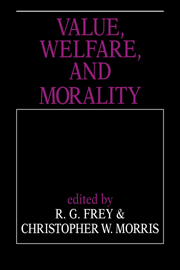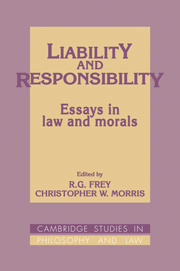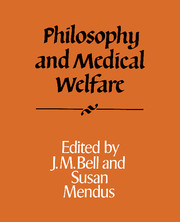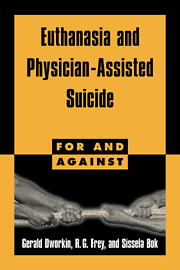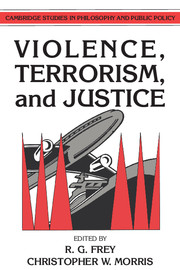Value, Welfare, and Morality
This book addresses critical issues in normative ethical theory. Every such theory must contain not only a theory of motivation but also a theory of value, and the link that is often forged between what is valuable and what would be right is human welfare or well-being. This topic is a subject of considerable controversy in contemporary ethics, not least because of the current reconsideration of utilitarianism. Indeed, there is as much disagreement about the nature of value and its relationship to welfare and morality, as there is about the substantive content of normative ethical theories.
The essays in this collection, all new and written by a distinguished team of moral philosophers, provide an overview, analysis, and an attempted resolution of those controversies. They constitute the most rigorous available account of the relationship among value, welfare, and morality.
Reviews & endorsements
"...each essay provides a carefully argued point of view on an important issue....It should be of real interest to anyone working in the relevant areas of value theory." The Philosophical Review
Product details
March 2011Adobe eBook Reader
9780511880667
0 pages
0kg
This ISBN is for an eBook version which is distributed on our behalf by a third party.
Table of Contents
- List of contributors
- Preface
- 1. Value, welfare and morality R. G. Frey and Christopher W. Morris
- 2. The land of lost content Simon Blackburn
- 3. Putting rationality in its place Warren Quinn
- 4. Can a Humean be moderate? John Broome
- 5. Welfare, preference and rationality L. W. Sumner
- 6. Preference Arthur Ripstein
- 7. Reason and needs David Copp
- 8. Desired desires Gilbert Harman
- 9. On the winding road from good to right James Griffin
- 10. Value, reasons and the sense of justice David Gauthier
- 11. Agent-relativity of value, deontic restraints and self-ownership Eric Mack
- 12. Agent-relativity - the very idea Jonathan Dancy
- 13. The separateness of persons, distributive norms and moral theory David Brink
- 14. Harmful goods, harmless bads Larry Temkin.

